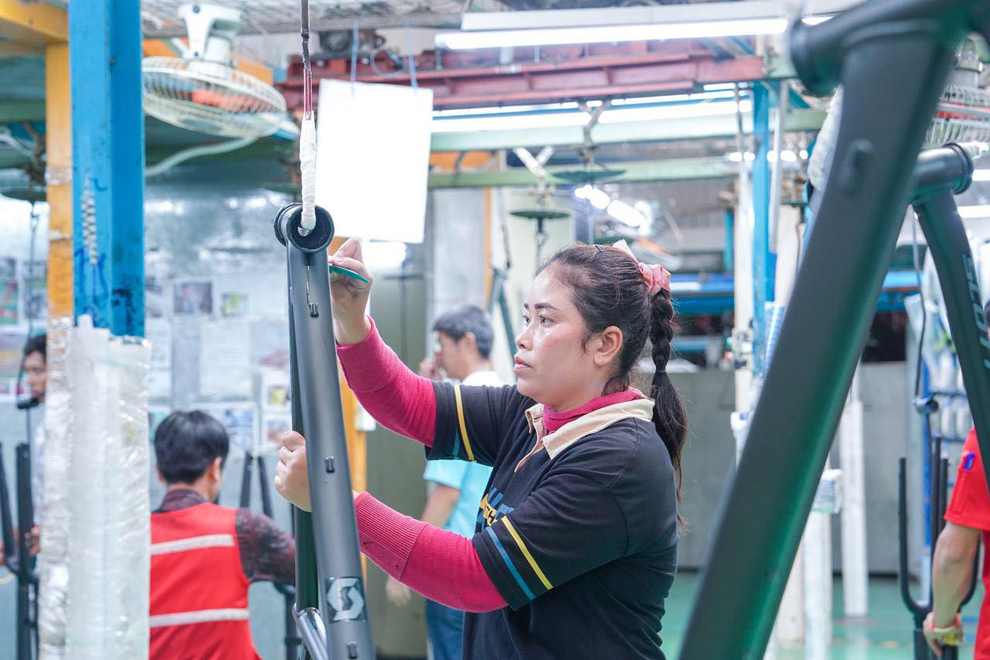
Workers at a bicycle factory in Svay Rieng's Tai Seng Bavit Special Economic Zone. COMMERCE MINISTRY
The EU has granted Cambodia the authority to utilise the Extended Cumulation Rule, allowing the use of raw materials or bicycle components originally from Vietnam in the production of bicycles for export to the EU, as stated by the Ministry of Commerce.
The commerce ministry issued a notice on October 17 to bicycle manufacturers and exporters, announcing the EU’s acceptance of this rule in response to Cambodia’s request. This decision, EU 2023/1810, dated September 19, aligns with the EU’s Generalised Scheme of Preferences (GSP).
In addition, the ministry advised bicycle manufacturers and exporters to apply for permits for their semi-annual import of raw materials or components from Vietnam. They should also provide quarterly reports on their usage, enabling the ministry to furnish necessary information to the EU.
Ministry spokesperson Penn Sovicheat, on October 18, highlighted that this permit would enhance efficiency in Cambodia’s bicycle export market, particularly to vital destinations like the US, Germany, Belgium, the UK, and the Netherlands, where Cambodia has an established presence.
“As is widely known, Vietnam has already entered into a free trade agreement with the EU, expanding the variety of Vietnamese exports. Consequently, Vietnam has emerged as a direct competitor to our interests,” he noted.
“To address this, Cambodia and Vietnam have jointly committed to submitting a letter to the EU. This letter seeks to ensure the lawful utilisation of Vietnamese raw materials and the provision of a sufficient supply of these components in alignment with our specific requirements,” he elaborated.
Economist Hong Vannak of the Royal Academy of Cambodia’s International Relation Institute noted that while this EU approval offers both positive and negative aspects, using components from Vietnam may restrict Cambodia’s value-added contribution.
“On the flip side, our nation is primarily relegated to an assembly role, a consequence of employing Vietnamese components. This results in the loss of value-added and raw materials, essentially reducing us to the mere assemblers of these bicycles. However, on a brighter note, we have reaped substantial economic rewards through job creation and increased import duties,” he explained.
Recent statistics from the ministry revealed that Cambodia’s earnings from bicycle exports during the first nine months of this year exceeded $424 million, a 42 per cent reduction compared to the same period in 2022 when exports reached over $742 million.











